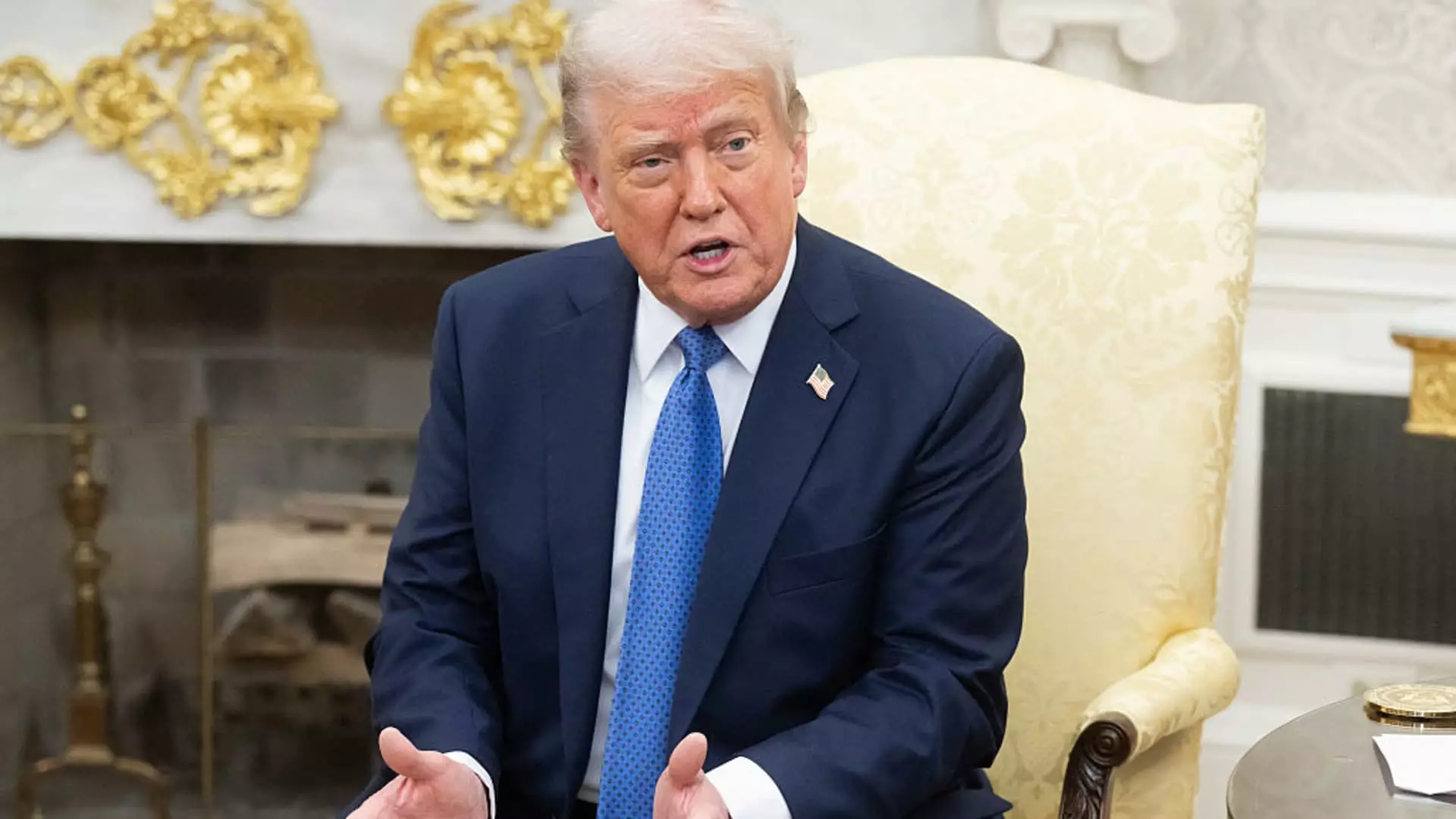President Donald Trump’s approach towards tariffs has always been bold, sparking both support and outrage. Recently, during an interview with Time magazine, he downplayed the bond market’s adverse reaction to his proposed tariffs, asserting that fear of market volatility did not sway his decision-making. Such dismissiveness may be admired by his base as a sign of confidence, but it raises critical questions regarding the future of U.S. economic stability and international relations. The decision to impose a 10% tariff on all imports marked a belligerent shift in trade policy, serving as a wake-up call that challenged decades of normativity in global commerce.
Trump, ever the provocateur, labels his actions as necessary revisions to existing trade agreements, hinting that a “reciprocal” approach will yield favorable outcomes. However, tossing around tariffs recklessly ignores the foundational principle of a fair trading system: mutual benefit. His assertion that ongoing negotiations will lead to satisfactory numbers is ambitious at best, if not naively optimistic. When an administration opts for aggressive tariffs without a clear strategic vision, it invites financial chaos and sends tremors through already precarious markets.
Market Responses and Economic Realities
Following Trump’s announcement, the bond market reacted unexpectedly with a rapid sell-off, indicating that investors are perhaps more perceptive than the leader himself about the long-term implications of such tariffs. The swift rise in the 10-year Treasury yield—experiencing one of its fastest surges in history—underscores an essential truth: financial markets do not function in a vacuum and are deeply affected by political decisions. The sentiment surrounding Trump’s tariffs, as he describes it, reveals considerable discontent among investors, who are likely worried about a potential spiral into inflation or recession as trade agreements deteriorate.
The simplicity with which Trump framed the trade deficit as a mere numerical issue fails to address the complexities intertwined with global trade: economic relationships, interdependence, and the risk of isolationism. A tariff-wielding approach may provoke retaliatory measures from trading partners, leading to a scenario in which American businesses and consumers bear the brunt of increased costs. In claiming that he remains unfazed by market turmoil, Trump risks alienating the business community that bolstered his ascent to the presidency.
Delusions of Control amidst Market Anxieties
Trump’s statement that the bond market has “gotten the yips” poignantly reveals a disconnect between his administration’s rhetoric and the market’s reaction. While he confidently professes the ability to negotiate favorable terms, the reality of financial shifts and investor responses hint at a larger truth: macroeconomic forces are formidable and often uncontrollable. Asserting that he knows what the nation has in terms of economic strength overlooks the vulnerabilities brought about by policy unpredictability.
The uncompromising stance on tariffs may also lead to a form of economic isolationism that is increasingly untenable in a globally interconnected marketplace. Anticipating that the U.S. could maintain tariffs as high as 50% while still enjoying a robust economy speaks to an idealistic view of economic nationalism that discounts the nuances of international trade dynamics.
Given the persistent uncertainty, the political and economic futures remain precarious. Businesses and taxpayers alike are left to speculate on how long the administration’s policies can survive in light of inevitable market corrections. It is an uneasy contradiction: a fervent push for making America great again juxtaposed against the inescapable fragility of its economic underpinnings. If the past year has taught us anything, it is that the roots of sound economic policy must be anchored in wise stewardship and a clear understanding of the global stage.

